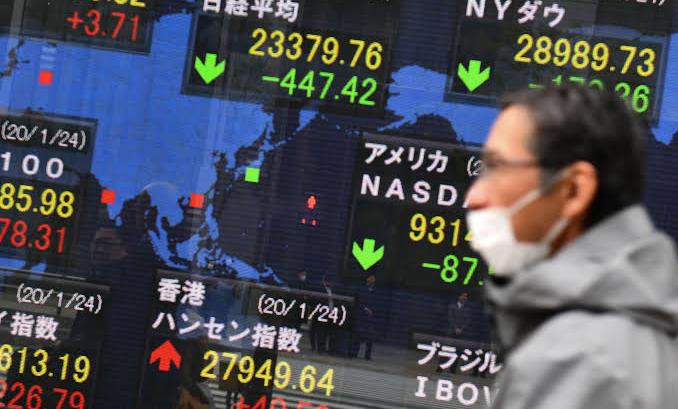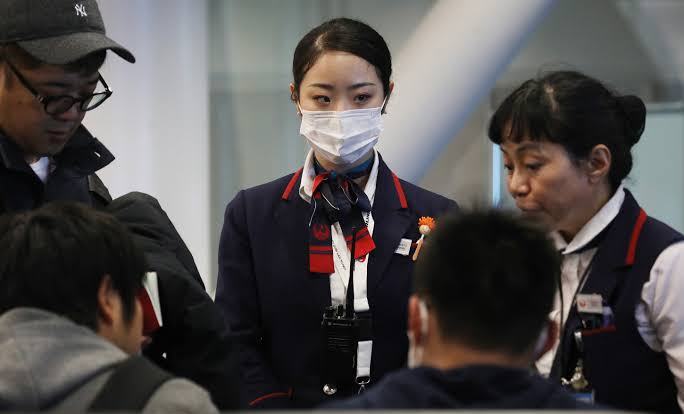The rapid spread of China’s coronavirus shocked investors worldwide, as stock markets remained remarkably lower on Monday. Chinese officials stated that the death toll of coronavirus rose to 80 at the end of Sunday, with over 2,700 infected.

The fifth case in the U.S. has also been confirmed, and the virus has been reported in South Korea, Singapore, Australia, France, Canada, Malaysia, Japan and Vietnam.
The pan-European Stoxx 600 fell 1.7% early in the trading session, while in the U.S., Dow Futures dropped 1.3% or 384 points at the open on Wall Street. While most of the Asian markets remained closed for the Lunar New Year, Japan’s Topix fell by more than 1.6% while the Nikkei 225 slipped 2%.
The blow from risk comes amid worries about a likely economic fallout from the coronavirus, with experts recalling the disaster of the SARS crisis that happened in 2013. Chinese top health officials said at a press conference on Sunday that the virus ability to transmit is strengthening.
In a note, early Monday, Danske Bank Chief Analyst Allen von Mehren demonstrated that China’s economy is possibly receiving a temporary hit and a likely GDP reduction of approximately one point in the first half of 2020.
“The SARS spread lasted three to four months, but it’s hard to say if this is any guide. While the authorities’ response is faster, the new virus appears to be spreading faster. It is too soon to say when it will get under control,” von Mehran said.
Traditional so-called safe-haven assets soared on Monday. Spot gold was trading up by roughly 0.78% at just under $1,582.6 a troy ounce in the early session in the European markets. The Japanese yen changed hands at 108 against the dollar.
The Swiss franc also stayed among the strongest-performing currencies.
Government debt prices experienced a surge, sending bond yields falling.
The yield on the benchmark U.S. 1-year Treasury note dropped to 1.6218% to reach its lowest since October, while the 30-year Treasury bond yield glided to 2.0825%.
The yield on the U.K. 10-year Gilt plummeted to 0.543% while the German 10-year Bund fell to -0.3550%, their lowest since October 10.

Danske Bank estimated that the Chinese service sector is highly likely to get the major hit this time around – and is much greater than it was during the SARS epidemic – now standing at 54% of GDP compared to 42% in 2003.
From a global perspective, the Chinese now account for about 19% of the global economy in purchasing power parity (PPP) adjusted terms versus 9% in 2003.
A modifying factor could be that the import content of the service sector is vastly smaller than that of manufacturing. Still, the uncertainty is expected to create some worldwide economic spillover, von Mehren explained.
“Hence, there’s a clear chance that the anticipated recovery in growth and PMI (Purchasing Manager’s Index) could be a bit delayed or at least be muted. As in China, the impact should be temporary, though,” Danske Bank Chief suggested.
He further added, “We’re currently in uncharted waters as a virus of this disaster has not taken place in the more advanced economy that China is today, with much broader transport networks and being more integrated with the worldwide economy.”

